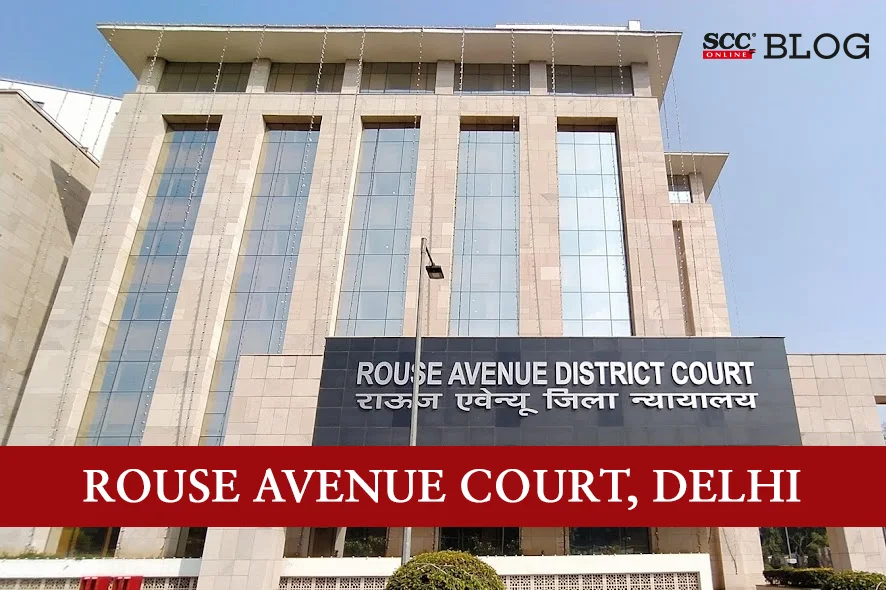Rouse Avenue Court, Delhi: An appeal was filed by X (victim) under Prevention of Sexual Harassment at Workplace Act, 2013 challenging the order passed by the Internal Complaints Committee (ICC) constituted by Standard Chartered Bank (respondent 4) for enquiring into a case of Sexual Harassment against her by an employee of M/S Standard Chartered Bank under whom the employee had worked. Ajay Goel, J., held that the findings of ICC suffer from illegality and infirmity.
The main grievance of the appellant is, though the respondent was found to be guilty of sexual harassment by the Internal Committee in its finding report, the Internal Committee was silent on any penalty or punishment to be awarded to the Respondent in view of Section 13 and 15 of the POSH Act and no recommendations were given to the Standard Chartered Bank as per the POSH Act for further actions to be taken by the Bank against the Respondent.
The other grievances were pertaining to the functioning of the Internal Committee and with regard to the practice adopted by the Internal Committee which was against all principles of natural justice and further that the Internal Committee had permitted anonymous witnesses one brought by the respondent and the other by the Internal Committee itself to give evidence without disclosing the names of the anonymous witnesses despite objections and protests from the victim.
The Court noted that sexual harassment is the expression of unhealthy human relationships and ICC is a fact-finding body that gives recommendations on allegations of sexual harassment at workplaces. The very object of the statute is to provide speedy and hassle-free remedy to the victims which is devoid of procedural complexities and rigors of courts and tribunals. However, in the present case respondent 4 never tried to go into the roots of the incident and neither was any recording made, nor any grievances of the appellant were paid any heed to by respondent 4.
The Court further noted that biased, partial, and one-sided behaviour of the internal committee was well depicted by the fact that the appellant was asked to share questions for cross-examination in advance and when this practice was objected by the appellant, the committee justified it by saying that respondent is not comfortable in cross-examination without having questions in writing in advance. Such conduct is totally against the principles of natural justice and any anonymous witness cannot be permitted to be produced in the inquiry under POSH Act and the practice followed by ICC, thus, in the present case ICC was prejudicial and biased towards the appellant.
The Court observed that the victims for this reason are afraid of filing cases/complaints of sexual harassment on account of their image being tarnished in the workplace as well as outside and victims become the topic of discussion and it becomes almost impossible for such victim to work in such environment and rather eyed with suspicion. Even the organization/employer remains reluctant to entertain such complaints and endeavours to avoid such cases for the sake of their reputation.
Thus, the Court laid down following observations:
- When a complaint is filed by a woman employee, it should be promptly looked into and an enquiry should be made by the Internal Committee within a reasonable period of time.
- The safety mechanism should be evolved to ensure that the women employees can express their concern to a suitable higher officer.
- The social welfare department should focus on creating awareness and promoting education about sexual harassment, consent, gender equality and respectful behaviour. This can be done through campaigns, workshops and training programs targeting both men and women.
-
the department should work towards implementing and enforcing stringent laws that protect women from sexual harassment. This includes reviewing and amending existing laws, if necessary, to ensure they are comprehensive and effective. Additionally, ensuring timely and fair investigation and prosecution of reported case is crucial.
Thus, the Court directed respondent 3 to pay Rs 1,50,000/- with an unconditional apology which has been already tendered and accepted. The Court has also directed a sum of Rs 50,000/- to be paid by the Standard Chartered Bank to the appellant.
[X v. Internal Committee, 2023 SCC OnLine Dis Crt (Del) 13, decided on 06-07-2023]
The error in the previous version stating that “Thus, the Court directed respondent 3 to pay Rs 1,50,000/- and a sum of Rs 50,000/- to be paid by the Standard Chartered Bank to the appellant and an unconditional apology.” is deeply regretted.








Thank you for carrying this important report. Can you please clarify what exactly the extra 50k was imposed for?